Hans Löbel
PUBLICACIONES
ABSTRACT
The COVID-19 pandemic has underlined the need for reliable information for clinical decision-making and public health policies. As such, evidence-based medicine (EBM) is essential in identifying and evaluating scientific documents pertinent to novel diseases, and the accurate classification of biomedical text is integral to this process. Given this context, we introduce a comprehensive, curated dataset composed of COVID-19-related documents.
This dataset includes 20,047 labeled documents that were meticulously classified into five distinct categories: systematic reviews (SR), primary study randomized controlled trials (PS-RCT), primary study non-randomized controlled trials (PS-NRCT), broad synthesis (BS), and excluded (EXC). The documents, labeled by collaborators from the Epistemonikos Foundation, incorporate information such as document type, title, abstract, and metadata, including PubMed id, authors, journal, and publication date.
Uniquely, this dataset has been curated by the Epistemonikos Foundation and is not readily accessible through conventional web-scraping methods, thereby attesting to its distinctive value in this field of research. In addition to this, the dataset also includes a vast evidence repository comprising 427,870 non-COVID-19 documents, also categorized into SR, PS-RCT, PS-NRCT, BS, and EXC. This additional collection can serve as a valuable benchmark for subsequent research. The comprehensive nature of this open-access dataset and its accompanying resources is poised to significantly advance evidence-based medicine and facilitate further research in the domain.
ABSTRACT
Continuous learning occurs naturally in human beings. However, Deep Learning methods suffer from a problem known as Catastrophic Forgetting (CF) that consists of a model drastically decreasing its performance on previously learned tasks when it is sequentially trained on new tasks. This situation, known as task interference, occurs when a network modifies relevant weight values as it learns a new task. In this work, we propose two main strategies to face the problem of task interference in convolutional neural networks. First, we use a sparse coding technique to adaptively allocate model capacity to different tasks avoiding interference between them. Specifically, we use a strategy based on group sparse regularization to specialize groups of parameters to learn each task. Afterward, by adding binary masks, we can freeze these groups of parameters, using the rest of the network to learn new tasks. Second, we use a meta learning technique to foster knowledge transfer among tasks, encouraging weight reusability instead of overwriting. Specifically, we use an optimization strategy based on episodic training to foster learning weights that are expected to be useful to solve future tasks. Together, these two strategies help us to avoid interference by preserving compatibility with previous and future weight values. Using this approach, we achieve state-of-the-art results on popular benchmarks used to test techniques to avoid CF. In particular, we conduct an ablation study to identify the contribution of each component of the proposed method, demonstrating its ability to avoid retroactive interference with previous tasks and to promote knowledge transfer to future tasks.
ABSTRACT
This article describes PUC Chile team’s participation in the Caption Prediction task of ImageCLEFmedical challenge 2021, which resulted in the team winning this task. We first show how a very simple approach based on statistical analysis of captions, without relying on images, results in a competitive baseline score. Then, we describe how to improve the performance of this preliminary submission by encoding the medical images with a ResNet CNN, pre-trained on ImageNet and later fine-tuned with the challenge dataset. Afterwards, we use this visual encoding as the input for a multi-label classification approach for caption prediction. W
ABSTRACT
This article describes PUC Chile team’s participation in the Concept Detection task of ImageCLEFmedical challenge 2021, which resulted in the team earning the fourth place. We made two submissions, the first one based on a naive approach which resulted in a F-1 score of 0.141, and an improved version which leveraged the Perceptual Similarity among images and obtained a final F-1 score of 0.360. We describe in detail our data analysis, our different approaches, and conclude by discussing some ideas for future work

Vicuña Mackenna 4860
Macul, Chile



